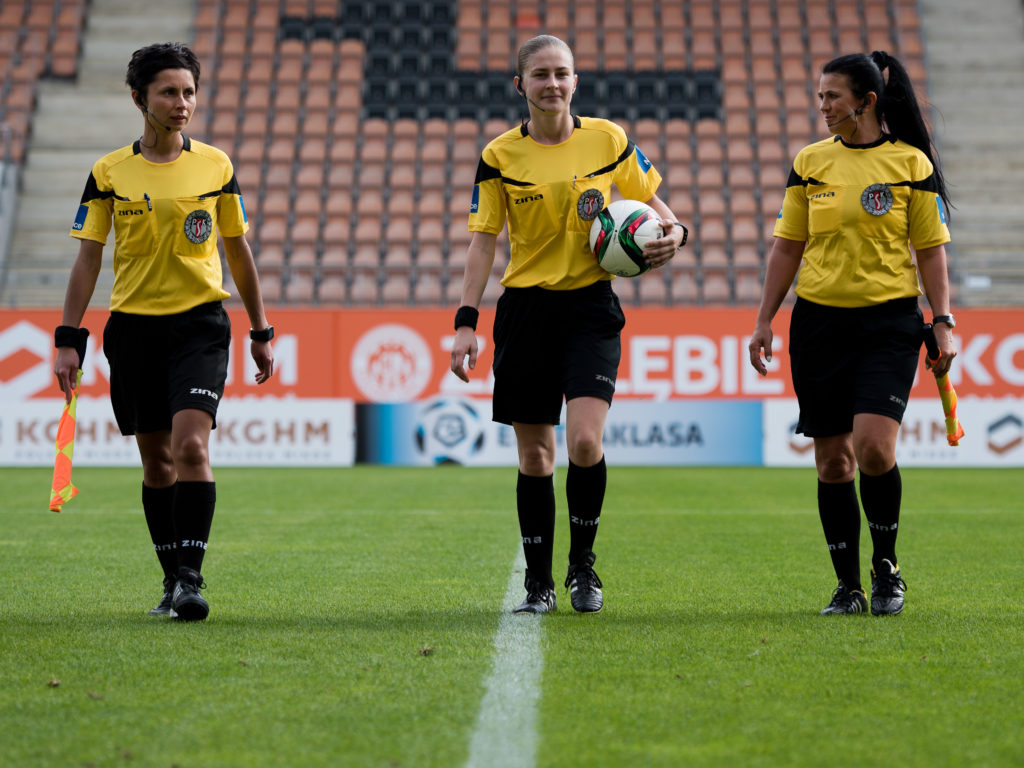For referees, the simplest approaches are often the most effective, and that’s certainly true when it comes to maintaining good levels of Mental Health and Wellbeing. Studies have suggested that there are five primary ways to Mental Wellbeing, and that these are positive strategies we can all incorporate into our daily lives. The great thing about them is that you can implement them on your own, with your family or officiating colleagues. See how many you can work into your routine.
Connect
Loneliness can increase the risk of Mental Health problems. Where possible, try to ensure you remain connected with family, friends, refereeing colleagues and other members of your support network. Whether you see people face to face, chat online, pick up the phone or even post a letter, staying connected allows you to share ideas, concerns or worries, and to offer or receive support. If you’re worried that your Mental Health is deteriorating and you need support from health care services, let someone know – and if you’re concerned about someone else, encourage them to seek support.
Remain Active
Officiating is good for your mental health, and even refereeing a youth game on the local park can make a difference if you do it in a way that’s right for you. Besides officiating, green space is also good for you, particularly for reducing stress, so getting out for a walk or a ramble in the countryside is a simple stressbuster. Support your physical activity by consuming a healthy, balanced diet, staying hydrated and maintaining self-care. On which note, prioritise sleep and you’ll feel the Mental Health benefits as well as promoting a more effective immune system.
Take Notice
When you’re going through challenging times, your thoughts and feelings can be overwhelming. That’s why it’s important to try to focus on being present and in the moment. Allowing time to recognise, understand and process your thoughts and feelings can have a positive impact on your Mental Health. Practising mindfulness or meditation or perhaps using an app, can enable you to switch your mind away from negative thoughts. Keeping perspective is also important, particularly if you find social media, national and global news anxiety-inducing. Gathering information from reliable sources can help, as can switching off notifications on your phone. Studies have shown that you only require 10 minutes of news consumption per day, to gain all of the crucial information that you need.
Keep Learning
Establishing structure and routine alongside taking up new hobbies, rediscovering old interests, or setting yourself small refereeing goals to achieve can have a positive impact on your Mental Health. Try to incorporate stimulating activities into your daily routine, even if it’s just simple things like completing a Wordle, reading a book, listening to podcasts, cooking or working through your ‘to do’ list. There are also lots of fun brain-training activities available online that you can complete on your own or with friends and officiating colleagues to get the competition going.
Give
The smallest acts of kindness really can make a difference to your state of mind. Giving to others makes other people feel good as well as you, creating positive feelings and a sense of self-worth and value. Appreciation and gratitude are also important, as they help you to focus on what you have, rather than what you don’t have.
Think about someone you know who’s done something you appreciate and let them know, this could be a referee coach or mentor who has helped you improve your onfield performances. Give them a call, write them letter, send them an email or message them. If you’re not able to do this, just think about someone who’s done something nice for you, and mentally thank them. At the end of each day, no matter how hard it may feel and no matter how small they may be, consider and make a note of three positive things about your day.
Kindness, appreciation and gratitude give us hope and help us to limit negative thoughts, which can otherwise become all-consuming. Ultimately, they enable us to feel positive emotions and increase our ability to cope with adversity.
At The Third Team I work individually and in collaboration with different professionals where I have developed workshops and 1-2-1 sessions associated with Resilience and Mental Toughness Development to help referees. The workshops and 1-2-1 sessions are interactive, where referees are encouraged to open up and share their experiences to help themselves and each other.
Feel free to contact me if you’d like to know more about my workshops or 1-2-1 sessions and how I could help you or your officials.
Best Wishes,

Nathan Sherratt
Referee Educator & Managing Director of The Third Team

Nathan Sherratt
Nathan Sherratt, Referee Educator, Resilience Trainer and Managing Director of The Third Team. A Mental Toughness Practitioner based in County Durham, North East England.

